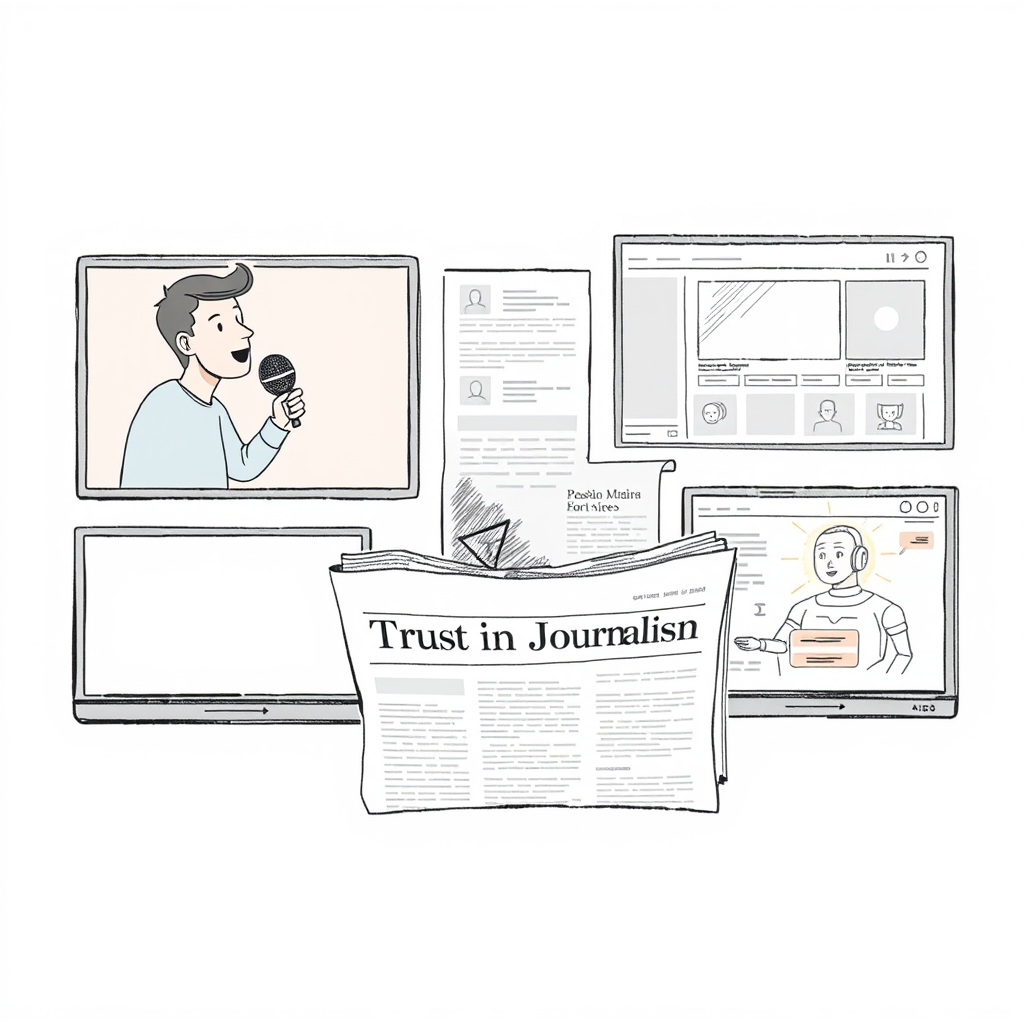News Consumption Shifts: Personalities, Video, and AI Rise

A new Reuters Institute report analyzing data from 100,000 individuals across 48 countries reveals a significant reshaping of news consumption habits, driven by the increasing influence of individual personalities, the surge in social video, and the emerging role of artificial intelligence. While overall trust in news remains stable at 40%, the ways people access and engage with information are undergoing a dramatic transformation.
The report highlights a growing preference for news delivered by individual voices – podcasters, YouTubers, and even politicians – particularly in the United States and countries in the Global South. This trend, while offering new avenues for engagement, raises concerns about the spread of misinformation, as these personalities are often perceived as partisan sources. Simultaneously, AI chatbots are gaining traction as news sources, especially among younger demographics, with 12% reporting usage for current event information. The potential for AI-generated news to lack trustworthiness is also a noted concern.
Interestingly, these developments may present an opportunity for established news organizations. According to Nic Newman, lead author of the report, audiences still turn to traditional brands for fact-checking, suggesting a continued need for reliable journalism.
The shift towards visual and social platforms is undeniable. News consumption via social media and video platforms has risen sharply, with 65% of respondents reporting usage in 2025, up from 52% in 2020. This trend is particularly pronounced in countries like the Philippines, Thailand, Kenya, and India, where watching the news is increasingly favored over reading it, fueling the popularity of news creators on these platforms.
However, this reliance on platforms presents challenges for publishers. Newman points out that while online video can engage younger audiences, the commercial benefits are limited, as most consumption occurs on platforms rather than directly on news websites. Furthermore, publishers face a potential loss of influence as populist politicians increasingly bypass traditional scrutiny by collaborating with sympathetic influencers.
The report underscores a critical moment for the news industry. The fragmentation of the media landscape, coupled with the rise of personality-driven content and AI, demands that publishers adapt their strategies to maintain relevance and trust. Simply put, the old rules no longer apply. The challenge isn’t just how news is delivered, but ensuring that quality journalism – verified, accurate, and impartial – remains a cornerstone of public discourse in an increasingly complex information environment. The full report is available for download on the Reuters Institute website.